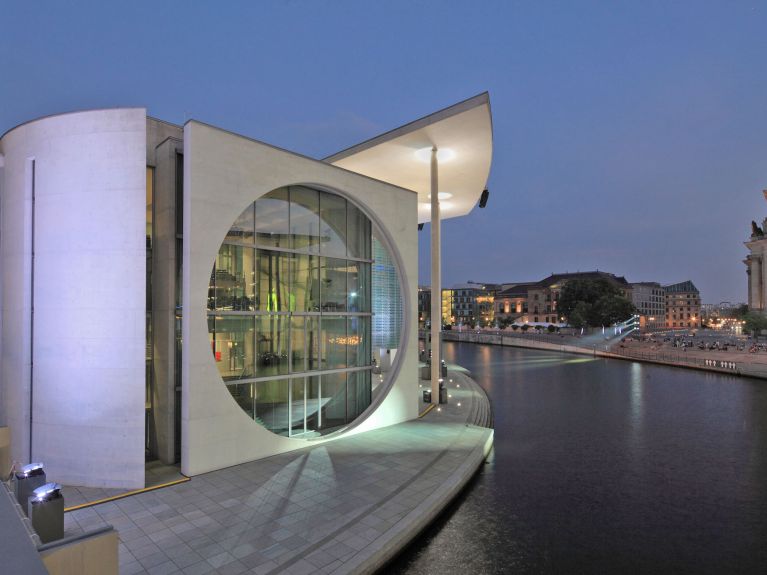Successful reforms
The Federal Republic of Germany is a value-based, vibrant democracy with a diverse political landscape.

Today, 25 years after reunification, Germany is a value-based, democratic, economically successful, and cosmopolitan country. The political landscape is diverse; the democratic parties compete against one another – but they also have mutual respect for one another and form coalitions at various political levels. Since the elections for the 18th German Bundestag in 2013, Germany has been governed by a Grand Coalition of CDU/CSU and SPD, an alliance of the two major forces in the German party system. Of the 630 Members of Parliament, the coalition partners account for 503 seats (CDU/CSU 310, SPD 193). The opposition has 127 seats, with The Left party holding 64 and Alliance 90/The Greens 63 of them, making it the smallest parliamentary opposition for over 40 years. Federal Chancellor Dr. Angela Merkel (CDU), the first female head of a German government, has been in power since 2005 and is now in her third term of office. She is the first woman in the history of the Federal Republic of Germany to hold this office. Merkel grew up in former East Germany, where she gained a doctorate in Physics. In rankings by Forbes Magazine in 2014 and 2015 she took first place in the list of the world’s most powerful women. Deputy Chancellor Sigmar Gabriel (Federal Minister for Economic Affairs and Energy) and Dr. Frank-Walter Steinmeier (Federal Foreign Minister) are important representatives of the SPD in the Cabinet. The Cabinet is made up of 14 ministers and the Head of the Federal Chancellery. The Coalition Agreement entitled “Shaping Germany’s Future” serves as the basis of the government parties’ joint work for the current legislature until 2017.
In 2016, the German economy will enter its seventh year of consecutive growth, employment is at a record high, and government revenue and national insurance contributions have risen. New debt assumed by central government has been reduced to zero. The Energy Reform is being driven forward – renewable energies are on the way to becoming the decisive technology for generating electricity. Furthermore, the reform of the social welfare systems in the early 2000s, a policy programme that went by the name of Agenda 2010, ensured that Germany weathered the financial crises since 2008 better than other countries in the Eurozone.
Together, the people in Germany have made the gradual fusion of east and west Germany, a major issue since 1990, into a success story. The “Solidarity Pact II”, for which 156.5 billion euros are set aside, will remain in force until 2019. All tax-paying citizens in the east and west continue to play a joint role in the “Aufbau Ost” project to redevelop the east through the “solidarity surcharge”, a supplementary contribution which today stands at 5.5 percent of personal income tax.
That said, new tasks await. As in other industrialised countries, demographic change and the associated ageing and contracting population are regarded as a challenge. Not least of all for this reason Germany intends to simplify immigration and make it easier for new citizens to become integrated.